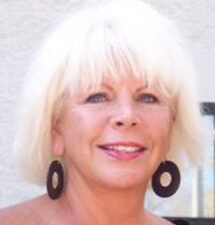 |
Online worship is truly a blessing. So, is there a curse? As with most things, there can be.
My first Sunday of in-person worship since our move back to Arizona was a month ago.
Fear
I had some of the same fears that many people have when attending a new church. Where do we park? Will I be dressed appropriately? And of utmost importance to a lady of a certain age, where are the bathrooms?
Parking was a breeze, I was overdressed as usual, and the bathrooms were well marked and easy to find. It was in the bathroom, however, that I met my first challenge. (My children would be quick to tell you that these situations come my way with a greater frequency than is perhaps normal.)
A lovely older woman asked me in heavily accented English how one flushes public toilets in America. I sensed that a demonstration might be more helpful than a long explanation. I followed her into the stall she had indicated and stood on one high heel so I could flush with my other foot. My age and athletic abilities combined to make this a less than graceful endeavor. I turned to her in accomplishment, only to see a look of horror followed by sheer hilarity wash over her face. Now whenever I see her, she lifts one foot, makes a flushing movement, and laughs with me. We have a bond.
My fears were shallow but not uncommon. Satan is so clever to use our everyday insecurities against us. One of the most effective fears right now is the fear of people not returning to worship once we’ve gotten comfortable and accustomed to online worship.
I have no desire to make this into a competition between online and in-person worship. Rather than an either/or, I see this as a both/and issue. Before online worship was a thing, I remember trying to find Time of Grace on TV for a friend, relative, or inquiring stranger who lived nowhere near a WELS church. And I remember how much I enjoyed that form of corporate worship when I was away from home. Online worship is infinitely more available now. I know homebound and immunocompromised people who would not be able to worship otherwise. We also know geographically challenged Christians for whom online worship is truly a blessing.
So, is there a curse? Is there a fear that we may have sent some people online and out of physical church? How could this be harmful?
Fellowship
Our loving God directs us to continue meeting together and to encourage one another when we gather (Hebrews 10:25). Receiving the Lord’s Supper with fellow believers is one of the joys of “gathering together.” The building itself is not the point, which I find reassuring. I’ve been in many WELS churches that are beautiful and give glory and reverence to our Lord. But I’ve also seen a few that could use a good coat of paint and a healthy dose of taste. My son and daughter-in-law spoke with glowing terms about the rooftop they shared with chickens to celebrate Easter in Southeast Asia. The building or its environs are merely a structure where we gather as a group of believers.
I was assigned out of college to start a new, one-room Lutheran school. I felt totally inadequate for the challenge. One night before the start of the school year, a member caught me looking frazzled. He assured me that what he and the other parents wanted for their children was not an expert but a faithful servant. They wanted their children to be taught the saving Word of God. Every week, it seemed, I ran up the down escalator—that is the first year of teaching. At the end of each week, I was exhausted and many times dispirited. Then I would go to church on Sunday. The children hugged me, their parents thanked me, and the Word uplifted me. The physical fellowship of believers is no small thing.
I will forever carry in my heart the journey I was privileged to witness in the first church to which my husband was assigned as a new pastor. We went to a small church on the East Coast that had dwindled in numbers. I felt we could be more welcoming as a congregation and said so. One of our members really took this to heart. Her personality and cultural background were the antithesis of what might come to mind when you think of an evangelist. I watched her push herself out of her comfort zone, more and more, week by week. She became the friendly face of our church. Others were inspired by her example, and we became known as a welcoming congregation. The power of observing other Christians at work is no small thing.
Years later, my husband’s health precipitated an early retirement from the public ministry. We moved across the state and joined a WELS church. The first Sunday we slipped in the back. Immediately after the service, a woman turned around and said to my husband, “You must be a pastor. You have such a beautiful voice!” At the time, I suspect my husband felt as far from being a pastor as he ever had. Those words were a balm to a hurting soul. My husband was eventually able to return to the ministry part time at that church. She was one of his best friends until he buried her. Bearing one another’s burdens is no small thing.
Facts
My daughter is a nurse with a master’s degree and certification in public health and critical care. She is a nurse educator at a well-respected hospital. We respect her opinion. In turn, she respects her father’s theological and legal training and knowledge. They both have facts to offer about this recent pandemic and how churches can respond to it.
Just as a person can sit with a concordance and cherry pick Bible passages that support a particular point of view, medical data also can be manipulated. So check your facts. Check your sources. And check their supporting education.
Freedom
Some states have government-issued mandates concerning how we may worship in person, particularly indoors. In Romans 13, we are enjoined to submit to the governing authorities and obey their directives.
Some people who have the option to return to church, won’t. Some people will be uncomfortable returning to worship. No matter the reason, we pray not to flaunt our freedoms so they become a stumbling block. Scripture gives us clear instructions about the freedoms of a Christian. We are to use our freedom for the sake of the gospel. The apostle Paul lovingly gave up his personal freedoms to share the blessings of the gospel with all (1 Corinthians 9:19,23).
I want to invite people to worship at my new church. Right now, we are meeting in an auditorium at a local high school. It is not grand. It is not traditional. And yet I have felt firsthand the warmth, kindness, and strength my church offers as we enjoy fellowship and study the Bible together. I missed it more than I knew.
How could I not want to share this?
Author: Mary Clemons
Volume 108, Number 6
Issue: June 2021





